"The Twilight Zone" (2019): Episode Seven Review


Rhea Seehorn and Taissa Farmiga in “Not All Men.”
[Spoilers for “Not All Men” follow.]
When I was a young boy, I went on a fourwheeler ride through the woods with a number of family members. Fourwheeler rides were frequent amongst the Bryant family. We would spend hours traversing the woods and mountains of eastern Kentucky, sinking our ATVs into pond-size mudholes to see whose vehicle was the strongest. Vehicles – trucks, cars, or those made for all terrains – are often a symbol of power. The obsession with whose vehicle is the most powerful is expressed in NASCAR, monster truck rallies, and even high school parking lots where Grizzly dip scented boys brag about their respective trucks’ lift kits. Fourwheelers are no exception to this Kentucky trend.
I was following my dad on a Kawasaki Prairie 360, a musky green, 600 pound behemoth. There are much larger fourwheelers of course, but as a prepubescent child I may as well have been driving Mount Everest. I felt like a man riding something so oversized.
That confidence dissipated rather quickly. I turned a corner a bit too quickly and drove the right side of my body into a thorn bush, scraping my arm. The tears were quaint. Hardly deep enough to create a scab. But being a child, I began to cry. Dad turned around, and after seeing my tears he brought his fourwheeler to a screeching halt. He limped over to me – his limp is far more pronounced when he is angry – and leaned into my face.
“What the hell is wrong with you?”
“I just got scraped by I bunch of thorns,” I quietly replied.
He pulled my face into his. Red was the defining feature of his veneer. His eyes, his cheeks, even his shirt, all red with rage. “A man never, ever cries,” he said to me. “If I see you ever cry again, I’ll give you something real to cry about.”
That day was a defining moment in my upbringing. His thesis was perfect rubric for which I could gauge myself against: men don’t cry; if I cry, I’m not a man. It was a simple rule, and unfortunately I am not alone in having learned it. Michael Ian Black wrote last year about the same issue for the New York Times. “Too many boys are trapped in the same suffocating, outdated model of masculinity,” he writes, “where manhood is measured in strength, where there is no way to be vulnerable without being emasculated, where manliness is about having power over others.”
Power is key to toxic masculinity. Power through violence. Power through strength. Power through skill. Power through vehicles. Men are taught at far too young an age that only power, brutally earned, gains them respect. Expressing vulnerability at any level risks the acquisition of power, so men must bottle it in. And all emotions, when bottled, morph into resentment and rage.

Taissa Farmiga in “Not All Men.”
In The Twilight Zone’s seventh episode “Not All Men,” Annie (Taissa Farmiga) tells her nephew Cole (Percy Hynes White) about a date she had last night with a man suffering from masculine aggression. After she and her co-worker Dylan (Luke Kirby) watched the much anticipated meteor shower, he attempted to force Annie into sex with him. Annie, fed up with Dylan ignoring her repeated and polite requests to stop making moves on her, pushes him off and rushes out of the house. Dylan gets offended not only at her refusal to fulfill his wishes but also the accusation that he is forcing himself on her. His demeanor is embedded with toxic expressions of aggression and sexism. “I wish there was a way to figure out which guys were gonna be assholes,” Cole says to Annie. “I wish I could kick his ass.”
Dylan’s penchant for aggression, though already common in the real world and the Twilight Zone, has begun spreading over city. The meteors, it turns out, are infecting the men of the town. Men are obsessed with these stones – dropping them into glasses and taking shots with them, tying them to a chain attached to their wallet – because they make the men feel powerful. This power leads to an onslaught of violence. Bar fights become gladiatorial brawls to the death. Minor disputes between men and women turn into murderous wars. The town quickly turns into a fairground for the Paternal Purge.
Annie and her sister Martha (Rhea Seehorn, one of television’s finest actors) realize that the stone is affecting all men when Martha’s husband Mike (Ike Barinholtz, who is using this episode to audition for the inevitable remake of The Shining and proving that he is well-equipped for the project) murders a man who followed the two women home. He is a good man, they say to themselves. But they know he is sick, suffering from the stone’s curse just as all the other men are. Mike eventually moves to attack Annie, but they are able to incapacitate him. They realize they must traverse the town to rescue young Cole, who is currently having a boat party on the seaport.
After fending off numerous men, both familiar and strangers, Annie and Martha find Cole relatively safe and sound. The three enter one last battle with a bloodthirsty man that results in Cole coming into contact with a stone. His face puffs up and his eyes turn red – all symptoms of the meteors’ curse – but he stops it. He chooses to fight off the stone. After an episode where all men have become ravenous beasts, the title “Not All Men” turns out to be true.
Top 10
- 1Trending
Travis Perry
hits 4 threes in Ole Miss' win over Houston
- 2Hot
Monday Lowe Update
Per Pope, Lowe's shoulder in 'really good shape'
- 3Hot
Stoops
acknowledges fan frustrations after Texas loss
- 4
5 Stages of UK FB Grief
It's time to mourn the Stoops era
- 5
Auburn game time
Cats vs. Tigers at night on Nov. 1
Get the Daily On3 Newsletter in your inbox every morning
By clicking "Subscribe to Newsletter", I agree to On3's Privacy Notice, Terms, and use of my personal information described therein.

Gun toting madman in “Not All Men.”
Medical examiners test the blood of many men after the town is quarantined by the military. But the blood is clean. No man is infected with any sort of disease to be cured. The stones gave them an excuse to act so barbaric. “There’s no cure because it’ll always be inside me,” Cole says to Annie and Martha. “I chose to [stop turning evil].”
“Not All Men” are monsters, the episode concludes, but truly being good requires choice. It requires men to not succumb to the brutish impulses that toxic masculinity celebrates. Suppression of emotion is expected in men, with only rage being acceptable if it can be used to gain power over others. Society promotes men to behave in such reprehensible ways. Men must actively fight against the wave of masculinity that threatens to corrupt them. It is a fight to be good.
Melanie Hamlet wrote an article for Harpers Bazaar on how men rarely have other male friends to confide in. Heterosexual men, unable to express their emotions to other men (if they can express them at all), treat their female partners as therapists. Women are often unequipped to bear the emotional burden of being men’s only emotional support, and they should not be expected to.
Many men, realizing their inability to talk to other men, have taken action to become good to themselves and their wives by developing secret support groups just for men. Scott Shepherd, an interview subject in Hamlet’s piece, summarizes the need for such a group perfectly. He says, “Men are taught the remedy to heartbreak is to get drunk with your buddies, objectify women, and go out and get laid; to basically distance yourself from your feelings and channel them into an aggressive outlet. We use sports as an excuse to bump up against each other… But this kind of closeness is based in camaraderie and aggression, not vulnerability and trust.” The support group is an outlet for which Shepherd and others can unlearn the singular idea of ferocious masculinity, and learn to be emotionally open.
My dad would never attend a support group of that kind, or likely any support group ever. The exposure would terrify him. But over the last ten years he has made his own efforts to rid himself of toxic masculinity’s shackles, small moves but meaningful. Once on the way to a college tour across the state he told me he was afraid of me moving. “I know you love us, but I also know I have been hard on you and.. maybe not the best dad. I am fine with you moving away if you chose to go to WKU. I just am worried you won’t visit us. I don’t wanna have scared you off.”
It was the first time I had seen my dad express remorse. It was the first time I had heard him say sorry. That car ride was the first of many changes he has undertaken to become a better dad. I never doubted that he loved me, but over the last decade he has become much better at showing us the great kindness hidden under his shell. Sometimes he even gives me a full-body hug instead of a side hug (readers who are like or know someone like my dad will know that is no small gesture). It is not a support group, but it is a step. “Not All Men” shows a path forward that myself, my dad, and many others are beginning to follow.
Episodes of “The Twilight Zone” are available exclusively at CBS All Access.
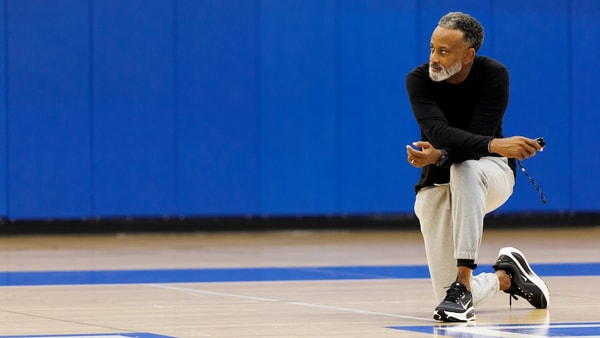
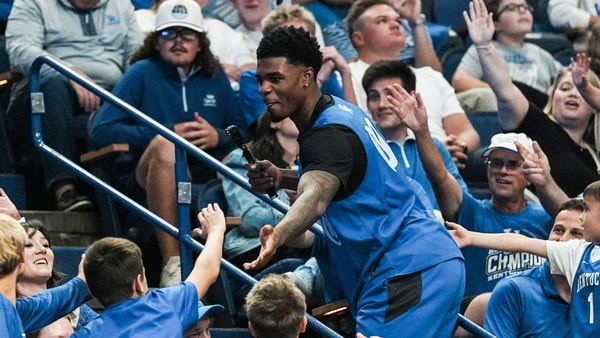


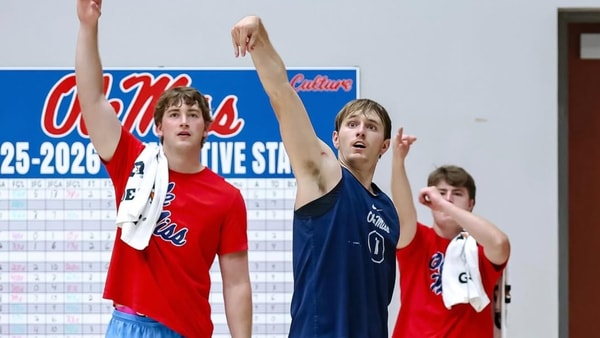
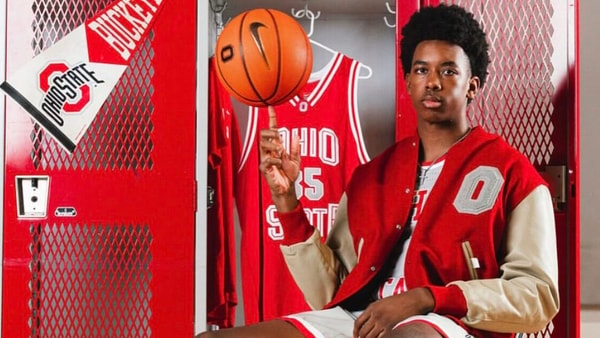

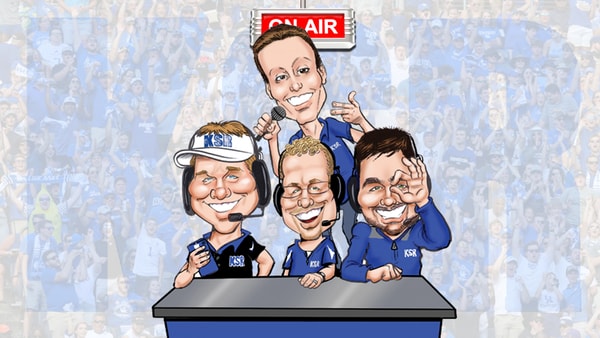
Discuss This Article
Comments have moved.
Join the conversation and talk about this article and all things Kentucky Sports in the new KSR Message Board.
KSBoard